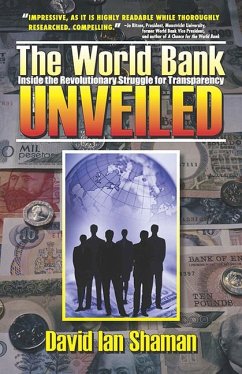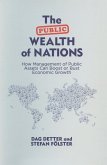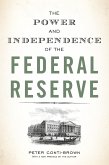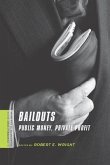Impressive, as it is highly readable while thoroughly researched. Compelling. --Jo Ritzen, President, Maastricht University, former World Bank Vice President, and author of "A Chance for the World Bank """ " "A fascinating and frightening expose of the World Bank's operations. An insider's intimate view of how an organization meant to help the developing world actually hindered progress. A must read!" --Arun Gandhi, grandson of Mahatma Gandhi, and Founder/Director, Gandhi Worldwide Education Institute This is an inside story about the World Bank and the challenges it is facing, from outside and within. It is a story about accountability. It is a personal account of an expert, who has tried to bridge the gap between a bureaucracy and the people that should be served. The story is frightening and challenging at the same time. The world needs this Bank. But Bank reform is due. I hope this book is widely read. --Jan Pronk, Professor of Theory and Practice of International Development at the Institute of Social Studies in The Hague, former Assistant Secretary-General of the United Nations, former Deputy Secretary-General of UNCTAD and former Dutch Minister for Development Cooperation David Shaman's "The World Bank Unveiled" offers an unparalleled account of the inner workings of the Knowledge Bank experiment under James Wolfensohn. As the leader of one of the innovative projects - B-SPAN - that were part of attempts to transform the Bank into a more transparent and humble partner for development, Shaman is able to provide a fascinating case study of the way that this vision withered in the face of the powerful existing culture of the Bank. Whilst there have been many books this decade from ex-Bank staff questioning the Bank's role in poverty reduction and development, Shaman's is by far the most significant account of the Knowledge Bank experiment, its potential and its ultimate demise. --Simon McGrath, Professor of International Education and Development, University of Nottingham and co-author of Knowledge for Development? Comparing British, Japanese, Swedish and World Bank Aid This is a knock-out of a book. It tells the inside story of how a small group of guerrilla staff members, initially working on environmental issues, wheeled and dealed to get the World Bank to accept unedited presentations of its activities both to its own staff and to the wider public. And of how some Bank managers out-machiavellied Machiavelli [Dr. Wade s full comments are on page 2 inside] --Robert H. Wade, Professor of Political Economy and Development, London School of Economics, noted expert on the World Bank and recipient of the Leontief Prize in Economics 2008" Nobel Prize winning economist and former World Bank Chief Economist, Joseph Stiglitz, has repeatedly discussed the importance of transparency in policymaking at the World Bank and International Monetary Fund. He believes a lack of transparency in the two institutions has lead to bad decisions. Bad decisions at IMF and the World Bank mean real pain for the world s poor. There is a perception that the suits close the World Bank s doors to deliberate the fate of earth s poorest populations and only when the doors are unlocked do people living in poverty learn what has been decided about their future. Meanwhile donations are down. The bank s critical International Development Association s funding has dropped dramatically. Managers are discouraged by studies examining the World Bank s effectiveness. How, they wonder, could such large beneficences have so little impact on poor populations? Events of the past two years have only increased the stakes. First, rising fuel prices caused a worldwide rise in the price of basic foods. Then the deepest economic downturn since the Great Depression sapped donor nation s coffers. By the end of the Bush administration in 2009, giving by the USA lagged more than any other wealthy nation. In 1999, two Bank researchers understood the situation was already on a precipice. World Bank loans had ceased to make significant impact on poverty in many client nations. Certain governments and multi-national corporations were destroying environments and desecrating indigenous cultures, all to achieve short-term gains for a fortunate few."" Demonstrable successes were few, and every World Bank conference became a melee of demonstrators and police. The two researchers asked themselves whether it was possible to open up the institution by increased transparency, improve its accountability, and mute criticism. They decided to launch an internet-based broadcast to disseminate unedited videos of internal discussions and debates. The bank s culture and bureaucracy, hardened over a half-century, presented them with a formidable foe. Some powerful officials feared the transparency initiative; others withheld public support while standing on the sidelines. "The World Bank Unveiled" documents this epic struggle. It is the story of a revolution to transform the World Bank and a case study of the power of the Bank to transform people s lives.
Bitte wählen Sie Ihr Anliegen aus.
Rechnungen
Retourenschein anfordern
Bestellstatus
Storno








